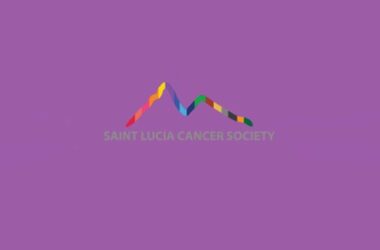
HAVING returned to Saint Lucia in May after being away for over a decade, it has been and continues to be a great pleasure to run into old friends and acquaintances. We spend some time chatting and catching up and eventually the conversation turns to the subject of public health.
One of the most common questions that I get asked is: “What exactly is public health?” Given the frequency with which I encounter this question and, given my unwavering belief in the power of the public health approach, writing a weekly article on the topic of public health seemed the next logical step.
So, what exactly, is public health? Although there are many different definitions to be found, they all agree that at the most basic level public health is about promoting and protecting health on a population level; it is about helping groups of people stay healthy and protecting them from anything which may pose a threat to good health. The Bloomberg School of Public Health at Johns Hopkins University provides an excellent way to define public health and its mission. They describe the work of public health as follows:
“In the medical field, clinicians treat diseases and injuries one patient at a time. But in public health, we prevent disease and injury. Public health researchers, practitioners and educators work with communities and populations. We identify the causes of disease and disability, and we implement largescale solutions.
“For example, instead of treating a gunshot wound, we work to identify the causes of gun violence and develop interventions. Instead of treating premature or low birth weight babies, we investigate the factors at work and we develop programs to keep babies healthy. And instead of prescribing medication for high blood pressure, we examine the links among obesity, diabetes and heart disease—and we use our data to influence policy aimed at reducing all three conditions.
“Today, public health encompasses areas as wide-ranging as epigenetics, chronic disease, the science of aging, mental health, disaster response, refugee health, injury prevention and tobacco control.”
This is one of my favourite descriptions of public health because of its clarity and also because it provides several real-life examples to which we can immediately relate. Instead of simply addressing the manifestation of a problem or treating the symptom as it appears on an individual basis, public health seeks to find out why the problem has appeared and to address the root of the issue in a strategic and evidence-driven manner.
The Bloomberg definition also illustrates how broad the field of public health really is: from gun violence to chronic disease to mental health to injury prevention; these are all public health issues.
The wide scope of public health comes from the World Health Organization’s official definition of health as not merely the absence of disease or infirmity, but also a state of physical, mental and social well-being. It is clear, therefore, that any discussion of health, at the very least, should include all of these aspects and this is the goal of public health: to ensure that all the different aspects of health are addressed, not on an individual basis but on a population level. This has tremendous implications for all people but especially those in developing regions of the world and those in low to middle income countries like Saint Lucia.
When I was a little girl growing up here, one of the most common slogans I remember hearing on the radio was “Your health is your wealth”. Of course, being so young, I could not appreciate how true it was then, but now, for me, this statement represents one of the most basic life truths, especially when it is taken with the “whole country” context in perspective.
My only objection to this statement is the use of “your” because it implies a transference of responsibility from the public to the personal sphere and can be interpreted as promoting an “us” versus “them” approach, which is neither effective nor acceptable. However, more on that in another article.
For this article, I want to emphasize the “health is wealth” portion and contrast this with a World Bank statistic which estimates that in the developing region of the Eastern Caribbean, poorer households spend 48% of their per capita expenditure on healthcare while better off households spend approximately 20%. These figures tell quite a story, which underscores the high cost of healthcare, the inequity that surrounds it and the implications for economic development, both in a personal and public context.
During this coming week, I want you to think about that story and next week, we’ll delve into it some more as we discuss Health, Wealth and Wellness.
Thank you for reading. Here’s some homework: do three good things next week; one for yourself, one for your family and one for your community! If you want to tell us about it, you can do so at LiveSmart758@gmail.com.



![Simón Bolívar - Liberator of the Americas [Photo credit: Venezuelan Embassy]](https://thevoiceslu.com/wp-content/uploads/2025/12/Simon-Bolivar-feat-2-380x250.jpg)






